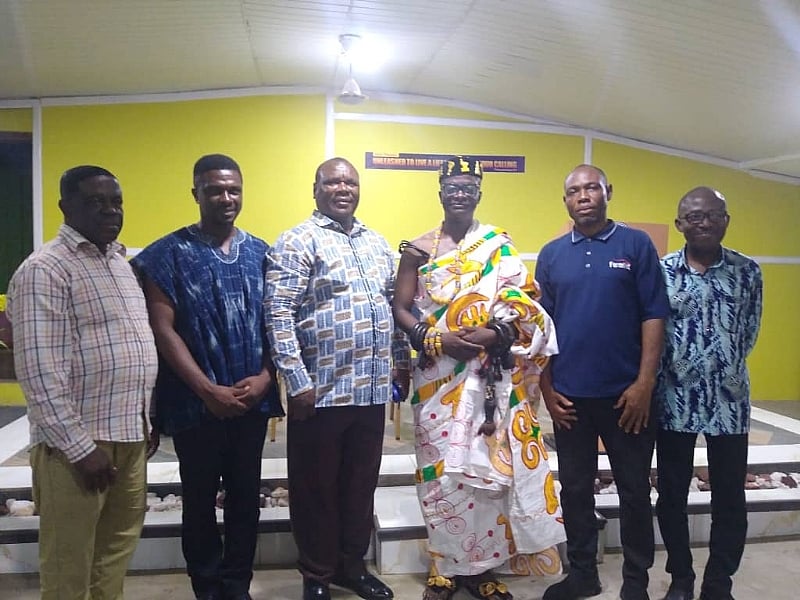Torgbui Tsifokpe III, a prominent traditional leader in Ghana’s Volta Region, delivered a thought-provoking message to the youth of the Church of Pentecost, challenging their conventional understanding of Christian identity. He argued that the term “Christian” has become diluted and no longer carries the weight of its original meaning. He attributed this devaluation to the perceived hypocrisy within the Christian community, particularly highlighting the involvement of self-proclaimed Christians in corruption, a pervasive issue in contemporary Ghanaian society. This disconnect between faith and practice, he posited, has eroded the respect and moral authority once associated with the Christian faith. His solution? A shift in nomenclature – abandoning the label of “Christian” in favor of “Disciple of Christ.” This transition, he believes, would emphasize a more active and committed following of Christ’s teachings, focusing on embodying his values rather than simply bearing a label.
Torgbui Tsifokpe III’s argument centers on the discrepancy between the original meaning of “Christian” – one who emulates Christ’s life and teachings – and its current usage, which he perceives as often lacking in genuine adherence to these principles. He contends that in the early days of Christianity, the title “Christian” was bestowed upon individuals who demonstrably lived like Christ, earning them respect and admiration within society. However, he believes that this link between identity and action has been severed in modern times, with many who identify as Christians failing to reflect Christ-like behavior in their daily lives. This, he argues, has led to a decline in the perceived moral stature of Christians, particularly in light of their alleged involvement in corrupt practices.
The chief’s call for the adoption of the term “Disciple of Christ” is not merely a semantic exercise; it represents a call for a deeper commitment to Christ’s teachings. He believes that this new designation would encourage a more conscious and intentional pursuit of a Christ-centered life, emphasizing practical application over mere nominal affiliation. This renewed focus on discipleship, he suggests, would help restore the integrity and moral authority associated with following Christ, reclaiming the positive connotations that the term “Christian” has seemingly lost.
His message, delivered during the Church’s Youth Day celebration, emphasized the importance of integrity and hard work as essential components of genuine success. He cautioned against the allure of shortcuts and “get-rich-quick” schemes, urging the youth to embrace the values of sacrifice, dedication, resilience, and a strong grounding in faith as the true catalysts for achieving meaningful and lasting success. He linked these principles to the theme of the celebration, “Earnestly Working Towards Success in the Culture of Diversity,” highlighting the importance of upholding ethical values even within a complex and varied social landscape.
Furthermore, Torgbui Tsifokpe III addressed the challenges posed by cultural diversity, noting how certain cultural practices can hinder spiritual growth and the pursuit of success. He identified laziness, the pursuit of instant gratification, and the tendency to blame external forces for personal failures as detrimental cultural influences that often conflict with Christian values. He encouraged the youth to resist these negative influences and cultivate a culture of personal responsibility, hard work, and faith-driven perseverance.
The event, attended by both church leaders and members of the congregation, highlighted the importance of interfaith dialogue and collaboration. Reverend Daniel Antwi-Adjei, the District Pastor, commended the chief for his insightful message and reaffirmed the Church’s commitment to engaging with traditional leaders. He acknowledged the existence of a dedicated ministry within the Church specifically focused on building relationships with traditional authorities, recognizing the valuable contributions they can make to the spiritual and moral development of the community. The chief’s address and the pastor’s response demonstrated a spirit of mutual respect and a shared desire to promote positive values within society, bridging the gap between traditional leadership and religious institutions.


